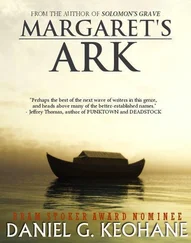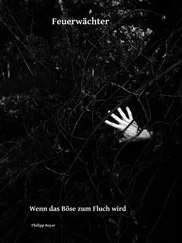C. Palov - Ark of Fire
Здесь есть возможность читать онлайн «C. Palov - Ark of Fire» весь текст электронной книги совершенно бесплатно (целиком полную версию без сокращений). В некоторых случаях можно слушать аудио, скачать через торрент в формате fb2 и присутствует краткое содержание. Год выпуска: 0101, Издательство: Penguin USA, Inc., Жанр: Старинная литература, на английском языке. Описание произведения, (предисловие) а так же отзывы посетителей доступны на портале библиотеки ЛибКат.
- Название:Ark of Fire
- Автор:
- Издательство:Penguin USA, Inc.
- Жанр:
- Год:0101
- ISBN:нет данных
- Рейтинг книги:3 / 5. Голосов: 1
-
Избранное:Добавить в избранное
- Отзывы:
-
Ваша оценка:
- 60
- 1
- 2
- 3
- 4
- 5
Ark of Fire: краткое содержание, описание и аннотация
Предлагаем к чтению аннотацию, описание, краткое содержание или предисловие (зависит от того, что написал сам автор книги «Ark of Fire»). Если вы не нашли необходимую информацию о книге — напишите в комментариях, мы постараемся отыскать её.
Ark of Fire — читать онлайн бесплатно полную книгу (весь текст) целиком
Ниже представлен текст книги, разбитый по страницам. Система сохранения места последней прочитанной страницы, позволяет с удобством читать онлайн бесплатно книгу «Ark of Fire», без необходимости каждый раз заново искать на чём Вы остановились. Поставьте закладку, и сможете в любой момент перейти на страницу, на которой закончили чтение.
Интервал:
Закладка:
“Holy relics were a big fad during the Middle Ages, weren’t they?”
“More like an obsession; many a pilgrimage was made to view the bones or petrified appendages of the holy saints. St. Basil’s shriveled bollocks. St. Crispin’s arse bone. Such oddities abounded.”
Beside him, Caedmon felt Edie’s shoulders shake with silent laughter, his companion obviously amused by Sir Kenneth’s bawdy humor.
“Christians in the Middle Ages were convinced that holy relics were imbued with a divine power capable of healing the sick and dying while protecting the living from the malevolent clutches of the demon world.”
“Sounds like a lot of superstitious hooey.” Indictment issued, Edie popped an oyster cracker into her mouth.
Sir Kenneth pruriently observed the passage of cracker to lip before replying, “While superstition did exist, the medieval fascination with holy relics was more than mere cultish devotion. Given that we live in a disposable society with no thought to the past and little for the future, it is difficult to comprehend the medieval mind-set.”
“Guess you could call us the here-and-now generation,” Edie remarked, seemingly unaware of the effect she had on the Oxford don.
“Indeed. But the generation that set forth for the Holy Land, donned in mail and armed with sword, full-heartedly believed that the land of their biblical forbears was a birthright. To these stalwart knights, biblical relics were a tangible link between the past, the present, and the unforeseen future. Thus the obsession with uncovering the treasures of the Bible.”
“The most sought-after prize being the Ark of the Covenant,” Caedmon pointed out, deciding to broach the subject in a roundabout manner. “No less a thinker than Thomas Aquinas declared that ‘God himself was signified by the Ark.’ Other Church fathers likened the Ark of the Covenant to the Virgin Mother of Christ.”
“Ah, yes . . . Faederis Arca .”
Edie tugged at his sleeve. “Translation, please.”
Secretly pleased that Edie had turned to him, Caedmon replied, “It’s the feminine form for the Ark of the Covenant. Faederis Arca was used to convey the religious belief that just as the original Ark had contained the Ten Commandments, the Virgin Mary had contained within her womb the Savior of the world.”
“So where does Galen of Godmersham fit into all of this?” Edie asked, proving herself a perceptive student.
“As with many younger sons with nary a prayer of inheriting, Galen of Godmersham decided to earn his fortune the old-fashioned way. That, of course, being the pillaging and sacking of the infidels in the far-flung Holy Land.”
“Rape and ruin . . . the stuff of English history,” Caedmon mordantly remarked.
Grinning, Sir Kenneth banged his palm against the table, setting half-filled glasses to rattling. “Ah! Those were the days, were they not?” Then, his voice noticeably subdued, he continued. “Both the Knights Templar and the Hospitallers were actively engaged in finding the Ark of the Covenant. As a Hospitaller, Galen of Godmersham would have joined the hunt. Ultimately, the knights’ hunt proved the wildest goose chase known to mankind. But this is where our story takes an intriguing turn.” Leaning forward, giving every appearance of a man taking a woman into his confidence, Sir Kenneth said in a lowered voice, “Although Galen of Godmersham did not uncover the goose, the lucky lad did happen upon a very fat gold-plated egg.”
In like manner, Edie also leaned forward. “You’re talking about the gold chest, right?”
Sir Kenneth nodded. “In 1286, while patrolling the region between Palestine and Egypt, Galen of Godmersham led a small contingent of Hospitaller knights through the Plain of Esdraelon. There, in a village called Megiddo, he—”
“Discovered a gold chest,” Edie interjected. “But this is what I don’t get”—she paused, a puzzled expression on her face—“if no one has seen this gold chest in nearly seven hundred years, how do you know the darned thing ever existed?”
“My dear, you are as mentally nimble as you are beautiful. I know because the local Kent records from the years 1292 to 1344 tell me so.”
“Of course . . . the Feet of Fines,” Caedmon murmured. When Edie turned to him, a questioning glance on her face, he elaborated. “The Feet of Fines was the medieval record of all land and property owned in England.”
“And the Feet of Fines clearly indicates that Galen of Godmersham had within his possession a gold chest measuring one and a half by two cubits. The Feet of Fines also indicates that the gold chest was kept in Galen’s personal chapel on the grounds of his estate. In addition to the gold chest, Galen owned a king’s ransom in miscellaneous gold objects. Objets sacrés , as they are listed in the official records.”
“So when Galen of Godmersham discovered the gold chest, he went from rags to riches, huh?”
The Oxford don nodded. “Like many a crusader, Galen of Godmersham profited from his tenure in the Holy Land. Although he seems to have had a generous streak. In 1340, he bequeathed to St. Lawrence the Martyr Church several vestiges d’ancien Testament .”
“Old Testament relics,” Caedmon said in a quick aside to Edie. Then, to his former mentor, “Bound by his vows of celibacy, Galen would have had no legal offspring. Who inherited the gold chest and all objets sacrés when the knight died?”
“While it’s true that Galen of Godmersham had neither son nor daughter, it wasn’t for lack of trying. No sooner did he return to England than Galen left the Hospitallers, taking up worldly pleasures with a vengeance.”
“So who inherited the gold chest?” Edie inquired, playing the wide-eyed ingénue to perfection.
“That, my dear, is a mystery. A mystery that has confounded historian and treasure seeker alike. Bear in mind that when the plague struck in the middle of the fourteenth century, its effects were devastating; one-third of England’s population succumbed. As you can well imagine, chaos ensued, and compulsory record keeping was thrown into a state of complete disarray. It has been suggested that Galen, who was nearing his eighty-fifth year when the bubonic plague reached the English shores, took the precaution of removing his precious gold chest from the family chapel in order to safeguard it from the looting rampage that followed in the plague’s wake. Generations of treasure hunters have focused on Galen of Godmersham’s deathbed burst of creative inspiration, the wily old knight having composed several poetic quatrains just prior to his death in 1348.”
“Oh, I get it!” Edie exclaimed, nearly coming bodily off her chair in her excitement. “The clues to the whereabouts of the gold chest are contained within the poetic quatrains.”
“Possibly,” Sir Kenneth replied, refusing to commit. “Although Galen’s verse is cryptic in nature, there is reference made in the quatrains to an arca .”
“ Arca being the Latin word for ‘chest,’ ” Caedmon said, taking a moment to consider all that Sir Kenneth had divulged. If the clues to the gold chest’s whereabouts were contained within the poetic quatrains, it would explain why a Harvard scholar had expressed an interest in those very lines of verse.
And if the scholar was in Stanford MacFarlane’s employ, it meant the bastard had a twenty-four-hour head start in solving the centuries-old mystery.
“Is there any chance that the gold chest discovered by Galen of Godmersham was the Ark of the Covenant?” Edie unexpectedly inquired.
No sooner was the question posed than Sir Kenneth’s woolly head swiveled in Caedmon’s direction. “Is that your purpose in roasting me over the fire, so that you can chase after a myth?”
Читать дальшеИнтервал:
Закладка:
Похожие книги на «Ark of Fire»
Представляем Вашему вниманию похожие книги на «Ark of Fire» списком для выбора. Мы отобрали схожую по названию и смыслу литературу в надежде предоставить читателям больше вариантов отыскать новые, интересные, ещё непрочитанные произведения.
Обсуждение, отзывы о книге «Ark of Fire» и просто собственные мнения читателей. Оставьте ваши комментарии, напишите, что Вы думаете о произведении, его смысле или главных героях. Укажите что конкретно понравилось, а что нет, и почему Вы так считаете.










